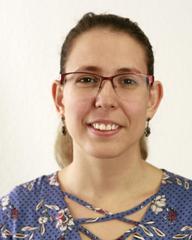URL: https://www.desy.de/news/news_search/index_eng.html
Breadcrumb Navigation
DESY News: DPG award for ATLAS physicist Priscilla Pani
News
News from the DESY research centre
DPG award for ATLAS physicist Priscilla Pani
DESY scientist Priscilla Pani receives the Hertha Sponer Prize of the German Physical Society DPG for her contributions to the search for dark matter at the Large Hadron Collider at CERN, the DPG announced in a press release today. Pani is a particle physicist in the DESY-ATLAS group and uses data from the ATLAS detector to search for dark matter using collision events with top quarks. She led an analysis studying the signatures of dark matter in various models and co-ordinated a common interpretation of all ATLAS results sensitive to dark matter. She thus set new limits for the search for previously undiscovered particles that could explain the dark matter that must make up much of the universe's matter.

Priscilla Pani will receive the DPG's Hertha Sponer Award. Image: DESY
"Since her master's thesis, Ms Pani has continuously achieved outstanding scientific achievements in experimental particle physics," reads the award text. In addition to her own search for dark matter, she has also compiled all other analyses on this topic in the ATLAS collaboration and has contributed specifically to the investigation of models with Higgs particles.
The Hertha Sponer Prize is awarded every year to a young female scientist for outstanding scientific work in the field of physics. The prize is intended above all to encourage young women scientists through public awards and thus attract more women to physics. The award consists of prize money of 3,000 euros and a certificate and will be presented at the DPG Spring Conference.



